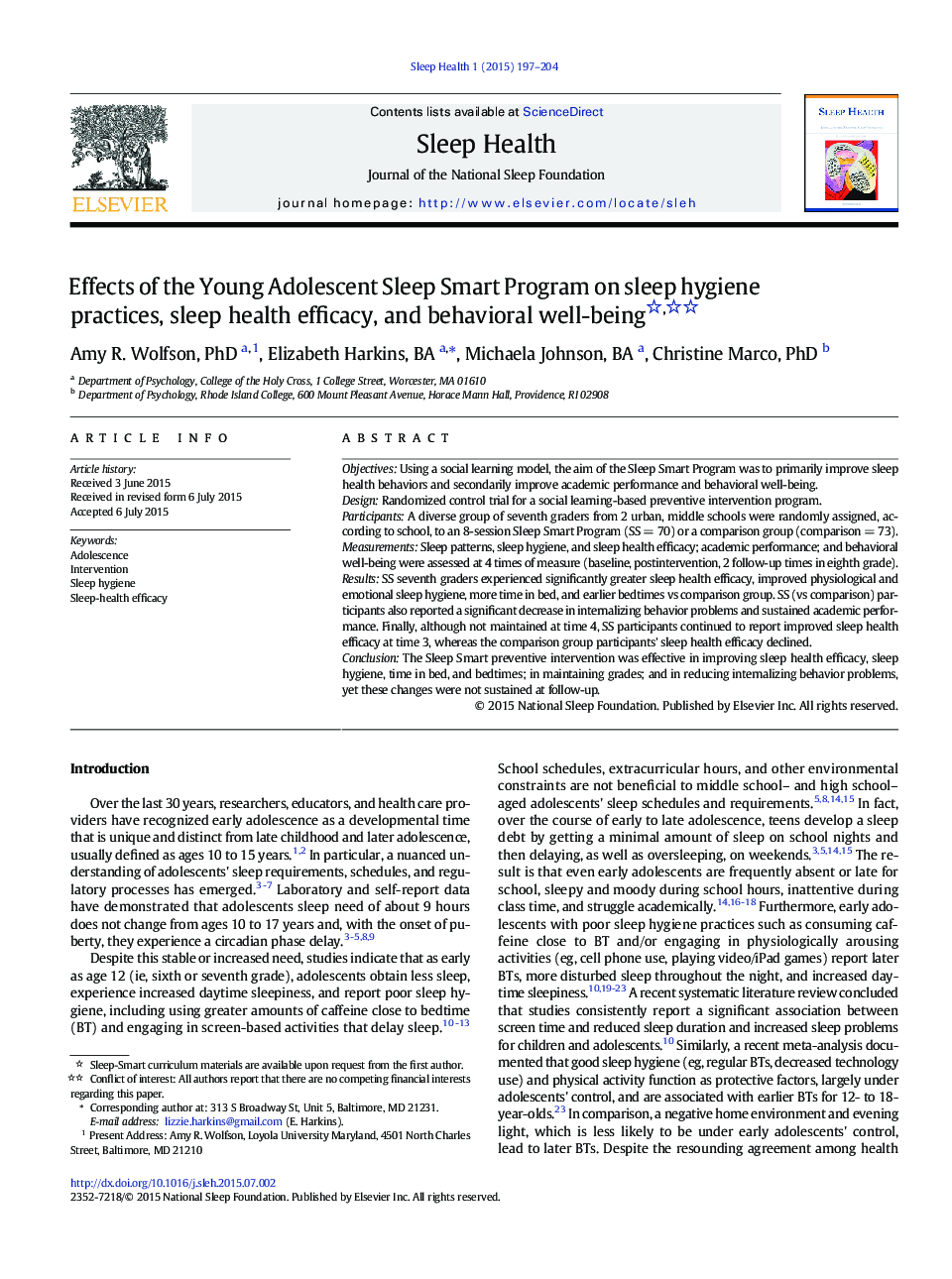| Article ID | Journal | Published Year | Pages | File Type |
|---|---|---|---|---|
| 916270 | Sleep Health | 2015 | 8 Pages |
ObjectivesUsing a social learning model, the aim of the Sleep Smart Program was to primarily improve sleep health behaviors and secondarily improve academic performance and behavioral well-being.DesignRandomized control trial for a social learning-based preventive intervention program.ParticipantsA diverse group of seventh graders from 2 urban, middle schools were randomly assigned, according to school, to an 8-session Sleep Smart Program (SS = 70) or a comparison group (comparison = 73).MeasurementsSleep patterns, sleep hygiene, and sleep health efficacy; academic performance; and behavioral well-being were assessed at 4 times of measure (baseline, postintervention, 2 follow-up times in eighth grade).ResultsSS seventh graders experienced significantly greater sleep health efficacy, improved physiological and emotional sleep hygiene, more time in bed, and earlier bedtimes vs comparison group. SS (vs comparison) participants also reported a significant decrease in internalizing behavior problems and sustained academic performance. Finally, although not maintained at time 4, SS participants continued to report improved sleep health efficacy at time 3, whereas the comparison group participants' sleep health efficacy declined.ConclusionThe Sleep Smart preventive intervention was effective in improving sleep health efficacy, sleep hygiene, time in bed, and bedtimes; in maintaining grades; and in reducing internalizing behavior problems, yet these changes were not sustained at follow-up.
